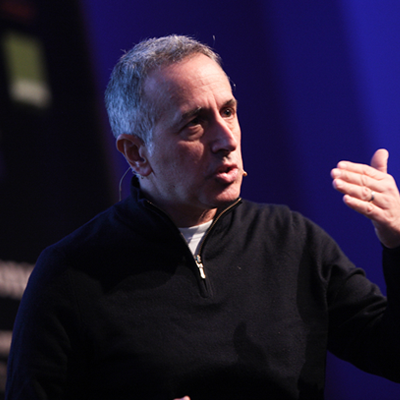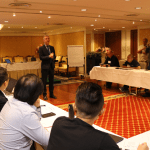
According to data released by the United Nations, just over half (55 percent) of the world’s population lives in an urban area today. The U.N. expects that percentage to increase to 68 percent by 2050, with roughly 90 percent of that taking place in Asia and Africa.
Urbanization: Not Always a Pretty Picture
Even in relatively developed countries, rural migrants flock to cities primarily looking for one thing: opportunity. Unfortunately, what they find often falls far short of what they hoped for.
Lou Zacharilla is the co-founder of the Intelligent Community Forum (ICF), a think tank which studies the relationship among satellites, broadband, ICT, and the impact of new social ideas on the enhancement of the world’s cities and towns. According to Zacharilla, “The idea that 60-70 percent of the world’s population is going to be pushed inside these cities and the idea that you can accommodate them is largely a fantasy. In my view, you have to be hyperaware of the unintended consequences of doing that.”
Urbanization tends to take the best and brightest – the money-earners – out of the countryside. When economic times are good, cities can absorb them, but when GDP slides, you’re left with a lot of unemployed or underemployed people.
Meanwhile, you’ve depopulated your countryside. The family and the culture that had been intact for hundreds of years has been shredded, and the money-earners are no longer able to support the family because they can’t find work.
Why Not Keep Them at Home?
The ICF proposes a different solution: why not keep them at home? Instead of focusing on smart cities, the real opportunity for societal good (and telecom profit) lies in creating what the ICF calls intelligent communities.
“You’ve got the ability now to connect everybody,” said Zacharilla. “If the political and economic types develop policies that will actually help people stay home instead of encouraging them to become economic refugees in the cities, you stabilize both places.”
Zacharilla believes that these rural populations offer great opportunities for telecoms, especially start-ups looking to tap into areas overlooked by their larger peers. Not only are they going to need basic infrastructure, but they’re also going to need the services and technologies that all digital societies need.
The ICF has put intelligent communities principles into play in places as small as Mitchell, South Dakota (population: 15,600) to much larger, planned areas like Vietnam. To learn more, you can check out the ICF’s most recent publication, Brain Gain, Broadband Economies: Building the Community for the 21st Century.
 Louis A. Zacharilla
Louis A. Zacharilla
Co-Founder, The Intelligent Community Forum
About Louis Zacharilla
Louis Zacharilla is a founder of the Intelligent Community Forum. He developed ICF’s iconic Awards program and talks about the city as “a canvas.” Lou speaks to audiences and thought leaders worldwide to help them understand the ICF Method, which has been credited with shaping the advancement of cities from Ohio to Taiwan. The ICF Method includes a focus on digital infrastructure, innovation and creativity. Lou appears in the media and is a frequent keynote speaker. He presented at the 2012 Nobel Peace Prize in Oslo to talk about how cities can enable more free societies. He gave a TEDx talk in Brazil in 2016.







